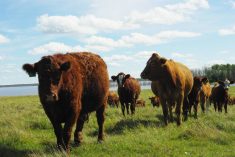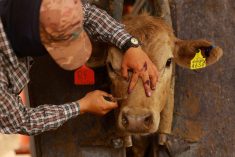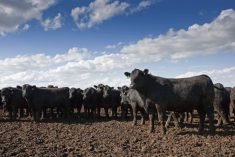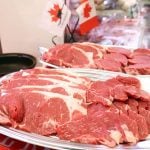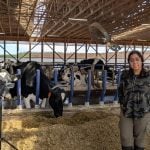Reuters — An 11-year-old cow in Alabama tested positive for bovine spongiform encephalopathy (BSE), the U.S. Department of Agriculture said on Tuesday.
The cow tested positive for the atypical L-type of BSE after exhibiting clinical signs at an Alabama livestock market, USDA said in a press release. Atypical BSE can arise spontaneously in cattle herds, usually in animals eight years old or older.
“This animal never entered slaughter channels and at no time presented a risk to the food supply, or to human health in the United States,” USDA said. “Following delivery to the livestock market the cow later died at that location.”
Read Also

Mexico agriculture secretary says still no date for restarting cattle exports to U.S.
Mexican Agriculture Minister Julio Berdegue said on Wednesday that Mexico and the United States have not yet set a date to resume Mexican cattle exports amid an outbreak of the flesh-eating screwworm parasite.
The Alabama cow is the fifth detection of BSE in the U.S., four of which were atypical.
“This finding of an atypical case will not change the negligible risk status of the U.S., and should not lead to any trade issues,” the USDA added.
The only classical BSE case was an animal found in 2003 at a Washington farm that was imported from Canada and born before a 1997 ban on the use of cattle feed containing brain or spinal tissue, which can result in transmission of the disease.
China last month resumed imports of U.S. beef for the first time since banning them following the 2003 scare.
First detected in Britain in the 1980s, classical mad cow ravaged herds in parts of Europe until the early 2000s and was linked to the brain-wasting Creutzfeldt-Jakob disease in humans.
— Reporting for Reuters by Michael Hirtzer in Chicago.




